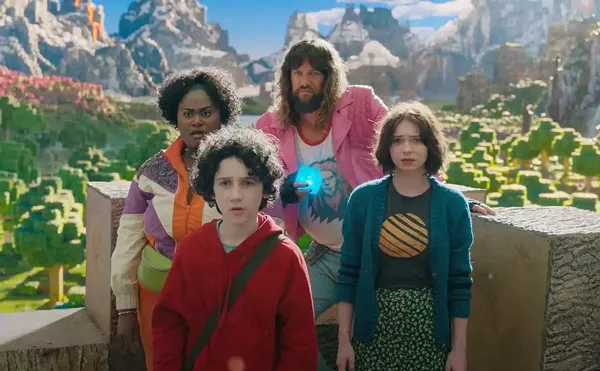Writer-director Nagisa Oshima, now in his late 60s, has had a taboo-breaking career, from his early Cruel Story of Youth (1960), a sort of Japanese Rebel Without a Cause, through such provocations as Boy (1969) and The Ceremony (1971), and his most famous film in the West, the sexually explicit In the Realm of the Senses (1975). Taboo, his first feature in 14 years, is set in a militia barracks in mid-19th century Kyoto and tells of the disruption caused by the arrival of a young samurai with an unsettlingly androgynous demeanor.
The young man, Sozaburo Kano (Ryuhei Matsuda), with his decidedly unmilitary long locks and childlike face, appears less effeminate than presexual, a physical embodiment of innocence in the strutting and grunting samurai enclave. Amid all the tense gusto of macho bonding (I haven’t heard this much forced laughter in a film since Goodfellas), Kano is a quiet and demure presence, though he’s also an excellent swordsman of unflinching loyalty — when ordered to execute a fellow soldier he does so with dispassion.
But even if in general he’s more passive than overtly gay, he floats through the samurai milieu like an incarnation of their lifestyle’s homoerotic subtext, a return of the repressed which you just know is sooner or later going to have to be squelched.
Meanwhile, the reactions to Kano vary from outright declarations of love to denials that there’s anything particularly “unusual” about him. One samurai does manage to bed him, in a scene which seems calculated to show the extremity of Kano’s passivity, his enigmatic not-there-ness. Another, older samurai, impressed by his fighting skill, takes Kano on an ill-calculated raid on some rival clan members. His superiors, having decided that all the kid needs is to get laid, fix him up at a local brothel with predictable results.
And then there’s Capt. Hijikata (Beat Takeski, giving a performance quite different than the minimalist ones he features in his own films), who has the most complicated reaction to Kano, a subtle mix of attraction and alarm.
Oshima is attuned to the humor of some of the situations here, though the film is essentially serious if not stately, despite some flashes of energetic swordplay. Such anachronisms as intertitles and vertical wipes (switching to the next scene by having it wipe across the present one — a device much favored by Kurosawa in the ’50s) give the film a classical aura, while the improbable geysers of blood place it squarely in the samurai filmic tradition.
But the central transgressive element — the thing which makes this distinctly an Oshima film — is oddly muted. The sacrificial lamb seems more ghost than flesh and blood, and his fate more symbolic than felt. Eminently watchable, it’s still a lesser film from a former agitator who’s become an old master.
Showing exclusively at the Detroit Film Theatre (inside the DIA, 5200 Woodward, Detroit), Monday at 7:30 p.m. Call 313-833-3237.
Richard C. Walls writes about the arts for Metro Times. E-mail him at letters@metrotimes.com.






